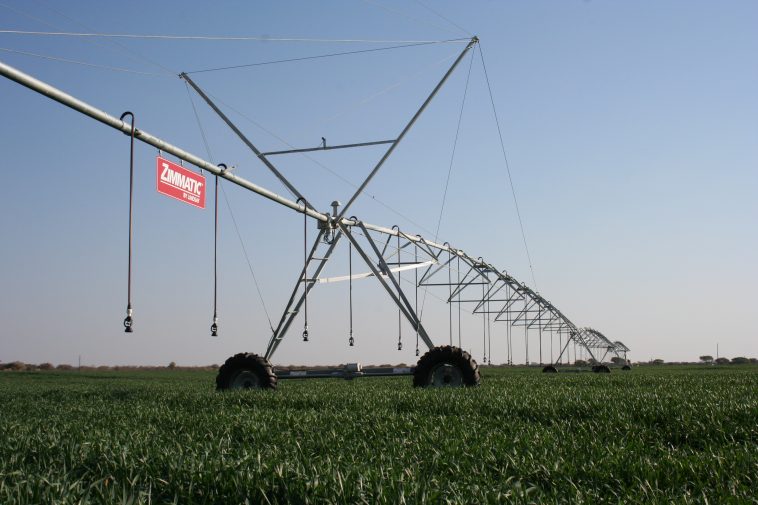In the heart of the Northeastern parts of Namibia, 250 km from Windhoek, on the farm Springvale, is a passionate female farmer, Elize van Niekerk, who farms with cattle, goats, sheep, maize and wheat.
Elize started her career as a pilot in the early 2000’s. After facing devastating tragedies, Elize had to take over the farm in 2014. At that time her triplets were just born.
“I had no choice but to start farming, since I could raise my children and still generate an income. In my heart I’ve always wanted to be where the footprints of my people are, and I want to raise my children on the farm where family legacies were left,” says Elize.

As the years went by, Elize had to diversify and intensify her farming operation. She currently farms with 500 Dorper sheep, providing slaughter lambs to Windhoek, 500 head of cattle, and goats. During the summer months, she cultivates maize and in the winter months wheat.
“My goals and vision for the future is to farm more sustainably, obtaining an average yield of 16 tonnes of maize per hectare and 9 tonnes of wheat. My dream is also to maintain a pregnancy percentage above 85% for my cattle and a weaning ratio percentage of 55%,” Elize explains.
“I think one of the biggest challenges that farmers, male or female, face, are environmental challenges and the fluctuation in nature, which makes it challenging to develop a stable financial platform. A farmer can truly be characterised as an all-in-one, since you need to have knowledge of so many different facets, from mechanisation, biological aspects, nutrition, management and people skills. One advantage of being a female farmer, I would say, is that we are a bit more precise. It is of utmost importance to me that I work out my cash flow and fertiliser programmes very carefully.
“Despite all the challenges that we face, to me it is a privilege and inspiration raising my children close to nature and on the farm. The sacrifices are worth it all. Seeing their eyes when catching a little lamb, or their faces when excitedly digging a hole in the ground to check whether the maize kernel has germinated yet. Grace upon grace, and having faith like a child gets me up every morning.

“My ultimate dream is to cultivate the soil and preserve the farm so that my children can one day also enjoy a beautiful Africa sunset.
“At the end of 2013, we purchased our first 13 ha Zimmatic pivot for the farm, which was set up by Brandberg, our local Zimmatic dealer. The next year, July 2014, we harvested our first maize irrigated with the 13-ha pivot. Today we have seven Zimmatic pivots on the farm, which irrigate 65 ha, and the eighth pivot will be set up soon,” says Elize.
Elize also plants 155 ha of dryland maize. Brandberg has set up five of
Elize’s pivots and Aqualand two of them. “Brandberg is strongly involved in our area. They have good experience and know what they are doing,” Elize states.
Elize adds: “The biggest advantage that Zimmatic offers to me, is the FieldNET automation function. It helps me to manage my pivots remotely whenever I am not on the farm, being a mom for my children.”
“Looking back, one of the highlights will definitely be the Master Agronomist Award that I received in 2018. This award is presented to a farmer who is practicing an exceptional innovative scientific approach, good risk diversification and community involvement.
“One thing that I have learned through the years, is that you have to be strong to stand alone, smart enough to know when you need help, and brave enough to ask for it,” Elize concludes.
For more information on Zimmatic and FieldNET products in Namibia, visit their website at www.lindsay.com.









